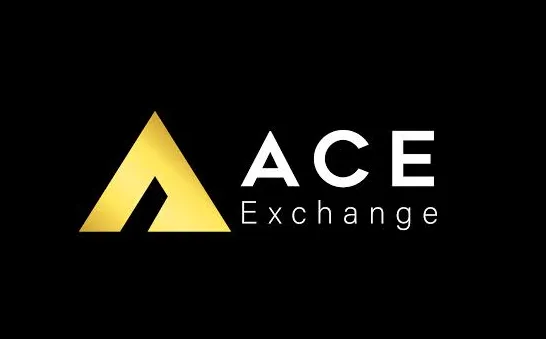
A new era of financial independence and creativity is being made possible by the bitcoin industry’s fast-expanding Decentralised Finance (DeFi) segment. By eliminating middlemen like banks and other financial institutions, it is based on blockchain technology and intended to give people more control over their financial holdings.
Users of DeFi platforms can now access new financial instruments like yield farming, automated market makers (AMMs), lending and borrowing protocols, and more. Furthermore, the DeFi market has been expanding quickly. By 2024, the entire value locked in DeFi protocols will have surpassed $150 billion.
But as DeFi has expanded, there have been a number of issues that need to be resolved. These difficulties consist of security concerns, high transaction costs, and a lack of scalability. AI can help in this situation.
These problems could be solved by AI, which would also help DeFi advance. DeFi platforms can increase security, lower transaction costs, and increase scalability. It can also offer customers predictive analyses to aid in making wise decisions by utilizing AI-based solutions.
In this article, we’ll examine how AI has affected DeFi. We will examine how AI-based solutions may aid users and the industry as a whole. Additionally, we will address some of the most serious problems plaguing DeFi platforms. We’ll also examine some potential drawbacks and challenges with using AI to DeFi, as well as workarounds.
The Role of AI in the Evolution of DeFi
Enhance Security
Decentralization is a foundational premise upon the creation of DeFi platforms, so they are independent of centralized control and security. Instead, DeFi platforms enable user transactions through the use of smart contracts, which are self-executing agreements stored on the blockchain. Although secure, smart contracts have had a number of high-profile situations where malevolent actors have taken advantage of security flaws in them.
To address this challenge, DeFi platforms are increasingly turning to AI-based security solutions. AI-based solutions can help identify and prevent potential security threats in real-time. For example, AI can monitor the blockchain for any suspicious activity, such as abnormal trading patterns or unauthorized access to user accounts. AI can also help identify vulnerabilities in smart contracts and alert developers to potential issues before any attackers exploit them. Another way that AI can enhance security in DeFi is by providing identity verification and authentication solutions.
With the increasing popularity of DeFi platforms, there is a growing need for reliable and secure identity verification solutions.
AI can be used to verify the identity of users through biometric data such as facial recognition, voice recognition, and fingerprint scanning. This can help prevent fraudulent activity and ensure that only authorized users have access to the platform.
Improved Scalability
Scalability is one of the biggest challenges facing DeFi platforms. With the increasing popularity of DeFi, platforms are experiencing a surge in transaction volumes, which can cause delays and high transaction fees.
These scalability issues can deter users from using DeFi platforms, and limit the growth of the industry. AI-based solutions can help address these scalability challenges. One approach is through the use of machine learning algorithms that can optimize transaction processing and reduce congestion on the blockchain.
By analyzing transaction data, these algorithms can predict network congestion and adjust transaction fees accordingly to incentivize users to transact during periods of low network activity. This can help reduce transaction fees and improve transaction speeds during peak usage periods.
Another way that AI can help improve scalability in DeFi is through the use of off-chain solutions. Off-chain solutions allow transactions to be processed outside of the main blockchain, reducing congestion and increasing transaction speeds. AI can be used to manage and optimize these off-chain solutions, ensuring that they operate efficiently and securely.
Predictive Analysis
Predictive analysis is the use of statistical algorithms and machine learning techniques to analyze historical data and make predictions about future outcomes.
In the context of DeFi, predictive analysis can be used to improve decision-making and risk management. One way that predictive analytics can be used in DeFi is through the use of predictive analytics models to assess creditworthiness. DeFi platforms rely on collateralized lending, where borrowers put up cryptocurrency as collateral to secure a loan.
Predictive analytics models can help assess the risk of default by analyzing a borrower’s credit history, financial data, and other relevant factors.
This can help DeFi platforms reduce the risk of default and ensure that loans are issued only to creditworthy borrowers. Furthermore, predictive analysis can also be used to improve investment decisions in DeFi.
DeFi platforms offer a range of investment opportunities, from stablecoins to yield farming. Predictive analytics models can analyze market trends and user behavior to identify investment opportunities with the highest potential returns. This can help users make more informed investment decisions and maximize their returns.
Lower Transaction Fee
Transaction fees in DeFi platforms can be a major barrier to entry for users, particularly for small transactions. High transaction fees can discourage users from using DeFi platforms and limit the growth of the industry.
However, AI-based solutions can help reduce transaction fees in DeFi platforms, making them more accessible and attractive to users. One approach to reducing transaction fees is through the use of machine learning algorithms to optimize gas fees. Gas fees are the fees paid by users to miners to process transactions on the blockchain.
Machine learning algorithms can analyze historical gas fee data. Then, it can predict optimal gas fees based on factors such as network congestion and transaction volume. This can help ensure that users pay the lowest possible transaction fees while still ensuring that their transactions are processed in a timely and reliable manner.
Another approach is through the use of off-chain solutions. Off-chain solutions allow transactions to be processed outside of the main blockchain, reducing congestion and increasing transaction speeds.
AI can be used to manage and optimize these off-chain solutions, ensuring that they operate efficiently and securely. This can help reduce transaction fees by reducing the load on the main blockchain and enabling users to conduct transactions more quickly and at a lower cost.
By reducing transaction fees, AI-based solutions can help make DeFi platforms more accessible and user-friendly. It will also encourage greater adoption and growth in the industry.
Automation
Finally, AI can help automate various processes on DeFi platforms. DeFi platforms rely heavily on smart contracts, which are self-executing contracts that automate various functions.
AI can help improve the efficiency and effectiveness of these contracts. It provides solutions such as natural language processing (NLP) and machine learning (ML). NLP can help improve the readability of smart contracts. Meanwhile, ML can help automate various functions and make contracts more efficient.
One area where automation can be particularly valuable is in managing collateralized lending. DeFi platforms rely on borrowers putting up cryptocurrency as collateral to secure loans. Managing these collateral positions can be a time-consuming and complex process.
AI-based automation tools can help manage collateral positions, automatically monitoring collateral values and liquidating positions if necessary. This can help reduce the risk of default and ensure that borrowers are able to repay their loans in a timely manner. Automation can also be used to execute complex trading strategies in DeFi.
DeFi platforms offer a wide range of investment opportunities, from stablecoins to yield farming. Executing these strategies manually can be challenging, requiring significant time and expertise. AI-based automation tools can help execute these strategies automatically, leveraging advanced algorithms to identify the best investment opportunities and execute trades quickly and efficiently.
This can help users maximize their returns and reduce the risk of costly errors. Overall, automation has the potential to significantly improve the efficiency and effectiveness of DeFi platforms, helping to drive growth and innovation in the industry.
Improve Liquidity
Improved liquidity is a critical factor for the growth and success of decentralized finance (DeFi) platforms. Liquidity refers to the ability of users to easily buy and sell assets on a platform without significantly impacting the price of those assets.
Low liquidity can result in a wide bid-ask spread and high volatility, making it difficult for users to execute trades at the desired price. AI can play an important role in improving liquidity in DeFi platforms. One approach is through the use of prediction algorithms that analyze historical trading data to identify patterns and predict future market trends.
This information can be used to optimize liquidity pools and ensure that there is sufficient liquidity for users to execute trades at the desired price. Another approach is through the use of automated market makers (AMMs).
AMMs use algorithms to determine asset prices based on supply and demand. AI can optimize these algorithms, ensuring that asset prices accurately reflect market conditions and providing users with access to more efficient and effective trading.
Explainable AI and Transparency in DeFi Decision-Making
One of the main concerns surrounding the use of AI in decentralized finance (DeFi) is the lack of transparency in decision-making. Many AI-based algorithms are opaque. This makes it difficult for users to understand how decisions are made and the factors that are taken into account.
This can create issues around accountability and trust, as users may be hesitant to use DeFi platforms that rely heavily on AI.
Explainable AI (XAI) is an emerging field that seeks to address these issues by making AI algorithms more transparent and interpretable. XAI tools provide users with insights into how algorithms make decisions. It also allows them to understand the logic behind recommendations and predictions.
This can help build trust and confidence in AI-based systems, making them more attractive to users. In the context of DeFi, XAI can play an important role in improving transparency and accountability.
XAI tools can explain how algorithms work in decision-making processes, such as loan approval or risk assessment. This can help users understand the reasoning behind certain decisions and how they can improve their chances of success on the platform.
Additionally, XAI can help identify potential biases or errors in the algorithms, allowing for more accurate and fair decision-making. Overall, XAI has the potential to significantly improve the transparency and accountability of AI-based systems in DeFi. By making algorithms more interpretable, XAI can help build trust and confidence in the industry. It will also encourage greater adoption and growth in the years to come.
Conclusion
In conclusion, the role of AI in the evolution of decentralized finance (DeFi) is becoming increasingly important as the industry continues to grow and mature. AI has the potential to revolutionize many aspects of DeFi, from improving security and scalability to enhancing liquidity and enabling automation.
However, there are also potential challenges and concerns around the use of AI in DeFi. For example, the lack of transparency in decision-making and potential biases in algorithms. It is important for the industry to address these challenges and ensure that AI-based systems are transparent, accountable, and fair.
Overall, the combination of AI and DeFi has the potential to create a more efficient, accessible, and inclusive financial system. By leveraging the power of AI, DeFi can continue to innovate and evolve. Then, it can continue providing users with new opportunities for financial empowerment and growth. It will be exciting to see how these two transformative technologies continue to intersect and shape the future of finance.
Personal Note From MEXC Team
Check out our MEXC trading page and find out what we have to offer! You can learn more about cryptocurrency industry news. There are also a ton of interesting articles to get you up to speed with the crypto world. Lastly, join our MEXC Creators project and share your opinion about everything crypto! Happy trading!
Join MEXC and Get up to $10,000 Bonus!
Sign Up


